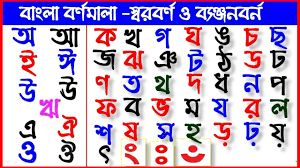Parts of Speech
Parts of speech বুঝতে পারার অর্থ word – এর Nature বা প্রকৃতি সমন্ধে সম্যক জ্ঞান। Parts of speech-এরগুরুত্ব Grammar-এ অপরিসীম। Parts of speech বুঝলেই ইংরেজি Grammar- এর ৫০% বোঝা সম্পন্ন বলেGramatist গন মনে করেন।
Part of speech অর্থ বাক্যের অংশ । কাজেই, শুধু ‘water’ কোন part of speech নয়। একটি বিচ্ছিন্ন wordমাএ । কারন ইহা কোন বাক্যের অংশ নয় ।কিন্তু ‘I water the Plant’ বাক্যটিতে ‘Water’ শব্দটি part of speech এবং verb । কাজেই sentence –এ ব্যবহৃত শব্দ মাত্রই part of speech ।
সকল parts of speech –ই words, কিন্তু সকল Words, Parts of Speech নয় ।
Word যতক্ষন বাক্যে ব্যবহৃত না হয় অর্থাৎ sentence-এর অংশ না হয়, ততক্ষন কোন Word-কে part of speech বলা যায় না ।
Sentence –এ ব্যবহৃত Word –এর ভূমিকা বা functioning অনুযায়ী সমস্ত Words কে ৮ শ্রেনীতে ভাগ করা যায়। অর্থাৎ words সমূহ বাক্যে ৮ রকমের ভূমিকা পালন করতে পারে। সুতরাং Parts of Speech ৮ প্রকার :
| 1. Noun 2. pronoun 3. Adjective 4. Verb 5. Adverb |
| 6. preposition 7. conjunction (অব্যয়) 8. Interjection |
1. Noun (বিশেষ্য): বাক্যে যে word কোন কিছুর নাম Indicate করে তাকে Noun বলে। Walking is good for health. বাক্যে walking শব্দটি একটি কাজের নাম বুঝিয়েছে। তাই ইহা Noun. বাক্যে Verb –এর subject এবং Object রূপে ব্যবহৃত শব্দগুলো অবশ্যই Noun অথবা Equivalent to Noun (noun –এর সমতুল্য) হতে হবে। Preposition –এর Object রূপে ব্যবহৃত Word গুলোও অবশ্যই noun বা Equivalent to Noun হবে। বাক্যে ব্যবহৃত শব্দসমূহের মধ্যে Noun –ই সর্বাধিক. একটি বাক্যে বহুসংখ্যক Noun ব্যবহৃত হতে পারে। কিন্তু Subject এবং Object ব্যতিত অন্য কোন Noun বাক্যে ব্যবহৃত হলে উহার পূর্বে অবশ্যই preposition বসবে, অন্যথায় উক্ত noun বাক্য থেকে বিচ্ছিন্ন থাকবে- বাক্যের অংশ হিসাবে গন্য হবে না। এদিক থেকে Preposition – কে Noun এর Connector বলা যায়।
Rahim knows Karim.
Subject verb object
Rahim saw Karim in the bus.
Subject verb Object Preposition noun
I go school. এ বাক্যে School (N) শব্দটি Subject ও নয় object ও নয় বিচ্ছিন্ন শব্দ। সুতরাং Preposition চাই। I go to school (school শব্দটি Preposition ‘to’ দ্বারা connected)
2. Pronoun (সবর্নাম): যে সকল ‘words’ Noun- এর পরিবর্তে ব্যবহৃত হয় অর্থাৎ noun – এর substitute রূপে ব্যবহৃত হয় তাদেরকে pronoun বলে। বাক্যে noun যে ভূমিকা পালন করে, Pronoun –ও Noun এর পরিবর্তে ব্যবহৃত হয়ে ঠিক সে ভূমিকাই পালনকরে। অর্থাৎ Pronoun – ও কোন verb –এর subject এবং object হতে পারে। subject বা object না হলে তারপূর্বে অবশ্যই preposition বসাতে হবে। অন্যথায় ইহা বিচ্ছিন্ন word বলে গন্য হবে। সুতরাং noun ও pronoun ভিন্ন শ্রেনীর হলেও ভূমিকা পালনের প্রেক্ষিতে ইহারা একই- group- এর বলে বিবেচিত। noun ও pronoun একে অন্যের equivalent. বাংলায় দুটোকে একত্রে ‘নামপদ’ বলে অভিহিত করা হয়।
3. Adjective (নাম বিশেষন): যে word শুধুমাত্র noun বা pronoun- কে qualify করে অর্থৎ শুধুমাত্রনামপদের বিশেষত্ব বা বৈশিষ্ট্য প্রকাশ করে, তাকে adjective বলে। যেমন:
Give me a red pen
adj N
কেমন pen? – red pen.
অর্থাৎ pen (N)-এর বিশেষত্ব বা বৈশিষ্ট্য হচ্ছে red বা লাল। সুতরাং red শব্দটি adjective. কিন্তু ‘Red is my favourite colour’ –এ বাক্যটিতে red শব্দটি noun. কারন এখনে উহা একটি রং এর নাম রূপে ব্যবহৃত এবং ‘is’ verb এর subject. এছাড়া my শব্দটিও এখানে pronoun নয়। কার favourite colour ? –আমার (my) । ‘colour’ (N) কে qualify করেছে বলে my শব্দটি এখানে Adjective, ‘Favourite’ শব্দটিও Adjective.
I walk in the morning. – বাক্যে ‘walk’ verb.
Walking is good for health. – বাক্যে ‘Walking’ noun.
The old man is walking with a walking stick.
V adj N
এ বাক্যে প্রথম ‘Walking’ verb কিন্তু দ্বিতীয় ‘Walking’ Adjective . কারন উহা stick (N) কে qualifyকরেছে। কেমন stick?- ‘Walking’ stick.
কাজেই কোন Word-এর বাহ্যিক চেহারা দেখে ইহাকে কোন নির্দিষ্ট Part of speech রূপে অভিহিত করলেভুল হবে এবং অবিচার করা হবে । ঐ Word টি আসলে কি ভূমিকা পালন করছে তার উপরই নির্ভরকরবে word টি কোন part of Speech.

4. Verb (ক্রিয়া): যে Word দ্বারা কোন কাজ করা বা সম্পন্ন হওয়া বুঝায় তাকে Verb বলে। কাজ করা নাবুঝালে ইহা Verb নয়।
যেমন- I walk in the morning. -কাজ করা অর্থাৎ হাটা বুঝিয়েছে।
Verb
Walking is good for health. -কাজ করা বুঝায় নি। কাজের নাম বুঝিয়েছে।
Noun
The old man is walking with a walking stick.
Verb adj
Verb এর অবশ্যই একটি subject থাকবে। কারন কাজ করা বোঝাতে কেউকে কাজটি করতে হবে। সুতরাং subject চাই। subject বিহীন verb প্রকৃত verb নয়। বিপরীতক্রমে, verb ছাড়া subject- এর ও অস্তিত্ব নেই।কারন কোন কাজ না করে কর্তা বা subject হওয়া যায় না।
কাজেই, subject ও verb অঙ্গাঅঙ্গিভাবে জড়িত। একটি অপরটি ছাড়া অচল বা অকল্পনীয়।
Read the book. – বাক্যটিতে ‘read’ finite verb বা সমাপিকা ক্রিয়া নয়। সুতরাং ইহার কোন subject নেই।‘read’ দ্বারা এখানে পড়া কাজটি সম্পন্ন হওয়া বুঝায় না।
5. Adverb (ক্রিয়া বিশেষণ / বিশেষনীয় বিশেষন ): যে word; verb; adjective বা অন্য adverb কে modifyকরে তাকে Adverb বলে। যেমনঃ
Karim is a very good boy.
Adv. Adj. N
Boy (N) কে qualify করেছে good. কেমন boy ?- good boy । সুতরাং good adjective.। আবার কেমন good ? – very good. very শব্দটি good (adj) কে modify করেছে। সুতরাং ‘very’ adverb.
আবার He walks very slowly. এ বাক্যে Walk (v) কে modify করেছে ‘slowly’ সুতরাং ‘slowly’ adverb.আবার slowly (adv) কে modify করেছে very । কেমন ধীরে?- খুব ধীরে অর্থৎ ‘very slowly’ সুতরাং ‘very’শব্দটিও adverb.
Adjective কেবলমাত্র Noun বা Pronoun কে Modify করে। পক্ষান্তরে, Adverb modify করে Verb, Adjective ও অন্য Adverb কে।
6. Preposition (পদান্বয়ী অব্যয় ): যে Word, Noun বা pronoun এর পূর্বে বসে বাক্যের অণ্য অংশের সাথে ঐ Noun বা
Pronoun কে সম্পকিত বা অন্বিত করে, তাকে Preposition বলে।
Put the book the table. – বাক্যে the table noun -টি বাক্য থেকে বিচ্ছিন্ন। ইহার পূর্বে ‘on’ বসলে উহা বাক্যেরঅংশ হয় বা বাক্যের সাথে সম্পর্কিত হয়।
যেমন, put the book on the table. সুতরাং এ বাক্যে ‘on’ একটি preposition । Preposition বাক্যে ব্যবহৃতnoun বা pronoun- এর পূর্বে বসে’ ঐ noun বা pronoun কে বাক্যের সাথে সম্পর্কিত করে।
Verb এর subject এবং object ছাড়া বাক্যে ব্যবহৃত অন্য যে কোন noun বা pronoun এর পূর্বে অবশ্যইpreposition বসাতে হবে। মূলতঃ preposition বাক্যে Noun বা Pronoun এর Connector রূপে কাজ করে।Noun বা Pronoun ছাড়া অন্য কোন Part of speech এর পূর্বে কখনো কোন preposition বসে না।
বিপরীতক্রমে, preposition এর পরে অবশ্যই Noun বা pronoun বা noun-এর সমতূল্য কোন শব্দ বা শব্দসমষ্টি অবশ্যই থাকতে হবে। noun বা pronoun না থাকলে preposition নিষ্প্রয়োজন।
আমি স্কুলে যাই। এখানে, স্কুলে= স্কুল+এ। অর্থাৎ স্কুল- এর সাথে ‘এ’ বিভক্তি যোগ হয়ে শব্দটি বাক্যে অন্বিতহয়েছে। বাংলা বাক্যে ঠিক এই বিভক্তির কাজটিই ইংরেজী বাক্যে করে preposition.
I go to school.
Prep N
7. Conjunction (সংযোজক অব্যয় ): যে word একাধিক word বা clause কে যুক্ত করে, তাকে conjunctionবলে। যেমন,
Rhim and Karim went there.
conj
8. Interjection (আবেগ সূচক অব্যয় ): যে word মনের আবেগ প্রকাশ করে, তাকে interjection বলে।Interjection একটি ভিন্নধর্মী Part of speech। অন্যান্য part of speech -এর মত বাক্যের অন্যান্য word বাঅংশের সাথে Interjection –এর প্রত্যক্ষ সম্পৃক্ততা নেই।
Alas! He is dead.
Interjection
আবেগ বা Emotion হচ্ছে sudden change of mind. অর্থাৎ interjection মনের কোন হঠাৎ পরিবর্তিত অবস্থাকে ব্যক্ত করে।
এ পরিবতিত অবস্থা আনন্দের বা দুখেঃর, যে কোন ধরনের হতে পারে।
| Preposition Conjunction Interjection | বাংলায় এ তিনটিকে বলে অব্যয়। কারন এগুলোর কোন ব্যয় বা পরিবর্তন নেই। পক্ষান্তরে, অন্য ৫ টি সব্যয়। কারন তাদের পরিবর্তন আছে। |
যেমন, Man (Noun) -এর Plural form ‘men`.
I (pronoun) – এর Objective case ‘me`.
Good (Adjective) – এর Comparative degree ‘better`.
Go (Verb) -এর past form ‘went`.
Fast (Adverb) -এর Comparative form ‘faster`.
কিন্তু, To, from, in (preposition) ইত্যাদির ভিন্ন কোন from নেই। and, but, or (conjunction) ইত্যদির ভিন্নকোন from নেই।
Alas!, Hurrah! (Interjection) ইত্যাদির ভিন্ন কোন from নেই সুতরাং Noun, Pronoun, Adjective, Verb ওAdverb এ ৫টি সব্যয়
এবং Preposition, Conjunction ও Interjection- এ ৩টি অব্যয়।
বিশেষ লক্ষ্যনীয়
একটি word কোন্ part of speech হবে তা নির্ভর করে বাক্যে ঐ word –টি কি ভূমিকা পালন করে, তারউপর। বাক্যে ব্যবহৃত না হওয়া পযর্ন্ত ইহা কোন ভূমিকা পালন করে না এবং কোন part of speech –ও হয়না। কেবল মাত্র বাক্যে ব্যবহৃত word –ই part of speech.
‘Water` কোন্ part of speech? – কোন part of speech নয়। একটি word মাত্র।
কিন্তু, I drink water (N) – বাক্যে water একটি part of speech এবং noun.
I water (V) the plant.- এখানে water একটি part of speech এবং Verb. এবং
I need a water pot. – এখানেও water একটি part of speech, তবে adjective.
adj
অনুরূপভাবে,
Man?
He is a good man.
N
He manned over the boat.
V
Book?
I read a book.
N
I booked two tickets.
V
He is a book worm.
adj N
কাজেই, বাক্যে ব্যবহৃত না হওয়া একটি Word – এর Part of peech নির্ণয় করা সম্ভব নয়। এবং বাক্যে ব্যবহৃত না হওয়া পযর্ন্ত মূলতঃ কোন word কোন part of speech – ও হয় না। আবার একই word একইform – এ বিভিন্ন part of speech
রূপেও ব্যবহৃত হতে পারে।
আবার, word ভিন্ন form নিয়েও ভিন্ন part fo speech রূপে ব্যবহৃত হতে পারে। যেমন, Drive verb, কিন্তুDriver Noun. এরূপ প্রায় সকল verb এর সাথে `er’ suffix যোগ করে ইহাকে Noun এ রূপান্তর করা যায়।
Verb + er = Noun
Teach + er = teacher
Play + er = player
Sing + er = singer
Dance + er = dancer
Write + er = writer
Speak + er = speaker
অর্থাৎ suffix or prefix যুক্ত করে কোন word – এর ‘part of speech’ change করা যায় এবং করা হয়।

Article
There is no doubt that articles are adjectives since they modify the nouns after them. But articles have some special significance as determiners. Articles determine the standard of nouns.
There are two types of articles:
- Definite Article – the
The makes the noun something particular and definite.
Example:
- Give me the ball.
(Here, the speaker is telling someone to give him/her a particular ball about which the speaker and the listener both are aware. There is no possibility of the ball to be anything else rather than the speaker and the listener idea of that particular ball.)
- Indefinite Article – a & an
A & an – make the noun something general and indefinite.
Example:
- Give me a ball.
(Here, the speaker is telling someone to give him/her a random ball about which the listener is not particularly aware of, and s/he might ask ‘which/what kind of ball you want?’.)
- Give me an egg. (It can be any kind of egg – the possibility is open.)
Rules of Using Articles
Definite article or Indefinite article, each of the articles has different uses in different situations.
Using Indefinite Article: a & an
Rule 1:
A common noun in the singular number always requires an article before it. But a plural common noun does not require an article always. A plural common noun can have the article ‘the’ if we want to particularise that noun.
Example:
- I saw a snake. (Refers to a random snake)
- I saw snakes in a zoo. (No article is required)
- I have seen the snake again. (Refers to the snake I have already seen earlier)
- I have seen the snakes again before leaving the zoo. (Refers to the particular snakes of the zoo which I saw earlier.)
Rule 2:
The choice between the two indefinite articles – a & an – is determined by sound. Words beginning with consonant sounds precede ‘a’ and words beginning with vowel sounds precede ‘an’. There are some special cases also. For instance,
- a university, a union, a useful book, etc.
- a one-dollar note, a one-man army, etc.
- an MA, a BA, an LLB, a BSC, etc.
Rule 3:
A or an – sometimes makes a Proper Noun a Common Noun. Proper nouns generally do not take any articles, but when a proper noun needs to be used as a common noun, you must bring a or an – for it.
Example:
- He thinks he is a Shakespeare. (Here, ‘Shakespeare’ does not refer to the actual person but someone like him.)
- He seems to be an Australian. (‘Australia’ is a proper noun but ‘Australian’ is a common noun because there is only one Australia but a million of Australians.)
Rule 4:
Sometimes indefinite articles are used to refer the number ‘one’/’each’/’per’.
Example:
- I earned a thousand dollar in that job. (One thousand dollar)
- I have a car. (One car)
- It goes 50 miles an hour. (Per Hour)
Rule 5:
Indefinite articles often precede descriptive adjectives.
Example:
- He is a good boy.
- What a nice car!
Rule 6:
‘A’ sometimes comes before determiners, for example, a few, a little, a lot of, a most, etc. but in the case of many, a or an – comes after.
Example:
- I have a few friends coming over.
- There is a little milk in the jar.
- Many a fan welcomed
Using Definite Article: the
Rule 1:
‘The’ is used to indicate a particular person(s) or thing(s) in the case of common nouns. Proper nouns generally do not take an article.
Example:
- The man is running. (A particular man)
- I saw the boy stealing.
- Where is the pen I gave you last year?
- I gave him a ball, but he lost the ball. (‘a ball’ became ‘the ball’ in the second clause because that ball was not a random ball anymore.)
Rule 2:
Sometimes ‘the’ is used to generalize a group/whole class.
Example:
- The dog is a faithful animal. (Refers to the whole species of dog.)
- The English are industrious. (Refers to the people of England as a nation)
- The honest are respected. (The+adjectives = plural noun)
- The poor are not always dishonest. (The+adjectives = plural noun)
Rule 3:
To particularise a non-count noun ‘the’ is required before it.
Example:
- The water of the Arctic ocean is freezing.
- Please return the money I lent you last year.
Rule 4:
‘The’ is mandatory before a thing which is only one of a kind in the universe.
Example:
- The moon is shining tonight.
- The earth is moving around the sun.
Use of ‘the’ before geographical places :
Rule 5:
Using ‘the’ with geographical nouns generally depends on the size and plurality of the things those nouns refer to. ‘The’ is generally used everywhere except some cases. So, it’s better to know those exceptions first.
‘The’ must not precede:
- Names of continents: Asia, Europe, Australia, Africa, South America, North America, Antarctica.
- Names of countries: Australia, Bolivia, England, France, Spain, etc.
- Names of states, cities, or towns: Los Angeles, Alaska, Sydney, London,
- Names of streets: George street, Albion Street, New town street,
- Names of singular lakes and bays: Lake Carey, Lake Eyre, Lake Hillier, Shark Bay,
- Names of single mountains: Mount Everest, Mount Solitary, Mount Bindo, Mount Fuji, etc.
- Names of single islands: Easter Island, Bare Island, Bird Island, Fatima Island,
- Names of languages: Spanish, Russian, English, (When ‘the’ precedes these nouns, they refer to the population of those languages.)
- Names of sports: cricket, football, basketball,
- Names of discipline/subject of studies: biology, history, computer science,mathematics,
Note:
‘The’ is a widely used article in English. Except for the list mentioned above and proper nouns, ‘the’ is used before almost all the nouns which mean something definite/particular. The above list has some opposite factors also. Those factors are explained in the following list:
‘The’ must precede:
- Names of oceans, gulfs, seas, and rivers: the Pacific, the Atlantic, the Coral Sea, the Timor Sea, the Persian Gulf,the Nile, the Murray River, the Darling River, etc.
- Names of countries with united states or islands: the United States of America (the USA), the UK, the UAE, the Philippines, etc.
- Names of great lakes: the Great Lakes, the African Great Lakes
- Names of mountain ranges: the Himalayas, the Alps, the Andes, etc.
- Names of a group of Islands: the

















Discussion about this post